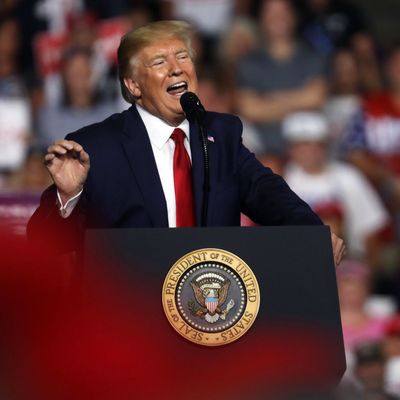
Last Friday, Democratic congresswoman Alexandria Ocasio-Cortez argued that Republicans oppose electing presidents by a national popular vote because “they *know* they aren’t the majority” and “rely on establishing minority rule for power.”
Her Republican colleague Dan Crenshaw took exception to this tweet; not because the Texas congressman felt his party represented the preferences of a majority of Americans, but rather, because he felt it anti-American to advocate for majority rule.
“Abolishing the electoral college means that politicians will only campaign in (and listen to) urban areas,” Crenshaw replied. “That is not a representative democracy. We live in a republic, which means 51% of the population doesn’t get to boss around the other 49%.”
There are several problems with Crenshaw’s argument. For one thing, it is not true that, absent the Electoral College, politicians would only campaign in urban areas. To state the obvious, not all politicians are presidential candidates, and the Senate and House would still overrepresent rural areas, no matter how the president is elected. What’s more, if Crenshaw’s hypothesis were correct, then no gubernatorial candidate in Texas would ever campaign in rural areas; after all, Texas is an urban-heavy state that elects its governors by popular vote. And yet, statewide candidates in Texas campaign in rural areas. There is no reason to believe that presidential candidates would comport themselves any differently in nationwide, popular-vote elections.
More fundamentally, the Electoral College does not actually privilege rural areas. In fact, it renders giant swathes of rural America politically irrelevant. The existing system merely awards disproportionate influence to the semi-random collection of states that happen to be narrowly divided in their partisan loyalties at a given moment. It is true that the perversity of this arbitrary arrangement (which does not operate remotely how the Founders envisioned) currently benefits the GOP, which is the preferred party of rural America. But it’s quite conceivable that in the near future, Texas could become a 51 percent Democratic state — in which case, the Electoral College would become massively biased in favor of urban America’s preferred political party.
Beyond his misunderstanding of the Electoral College, Crenshaw also betrays ignorance of what the distinction between a “republic” and a “democracy” meant to the framers of our Constitution, as the New York Times’ Jamelle Bouie deftly explains.
But the biggest problem with Crenshaw’s rebuttal may be this: To the extent that his normative argument has any moral logic, it is that narrowly divided polities should be governed on the basis of consensus rather than majoritarian rule. Fifty-one percent of the population shouldn’t “get to boss around the other 49%” is a reasonable position. But “49 percent should get to boss around the other 51 percent” isn’t. And yet, that is the principle that has informed the Republican Party’s approach to governance throughout the Trump era. The president has not nominated centrist judges to the federal bench, or made any effort to accommodate the preferences of Democratic voters in his major health-care or tax legislation or approach to regulatory policy. And Dan Crenshaw has evinced no concern about this “anti-republican” domination of one half of the country by the other.
An uncharitable observer might conclude that the only genuine principle of Crenshaw’s theory of government is that the Republican Party has a legitimate claim to power in the U.S., and the Democratic Party does not — because Republican voters are fundamentally more American than their Democratic counterparts.
And on Tuesday, the Trump campaign proudly affirmed that this is, in fact, the fundamental principle behind its support for the Electoral College. In a fundraising letter, the president’s campaign informed its supporters that “Socialist Rep. Alexandria Ocasio-Cortez dialed up the crazy to a whole new level recently when she called for abolishing the Electoral College” and that “The President is calling on you at this critical time to remind AOC and Democrats that this is our country, not theirs.”
It remains unstated exactly what is in the complexion of Trump’s base voters that renders them more American than Democratic voters. Regardless, it’s clear that, for our present, the question of who has a legitimate right to rule this country — and who does not — is a real black-and-white issue.






























